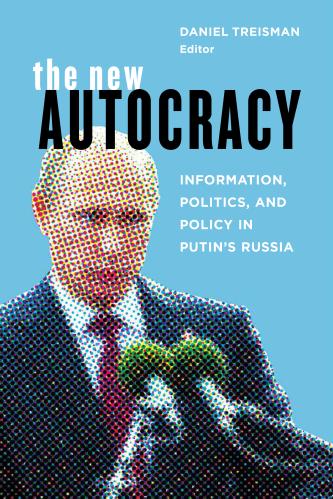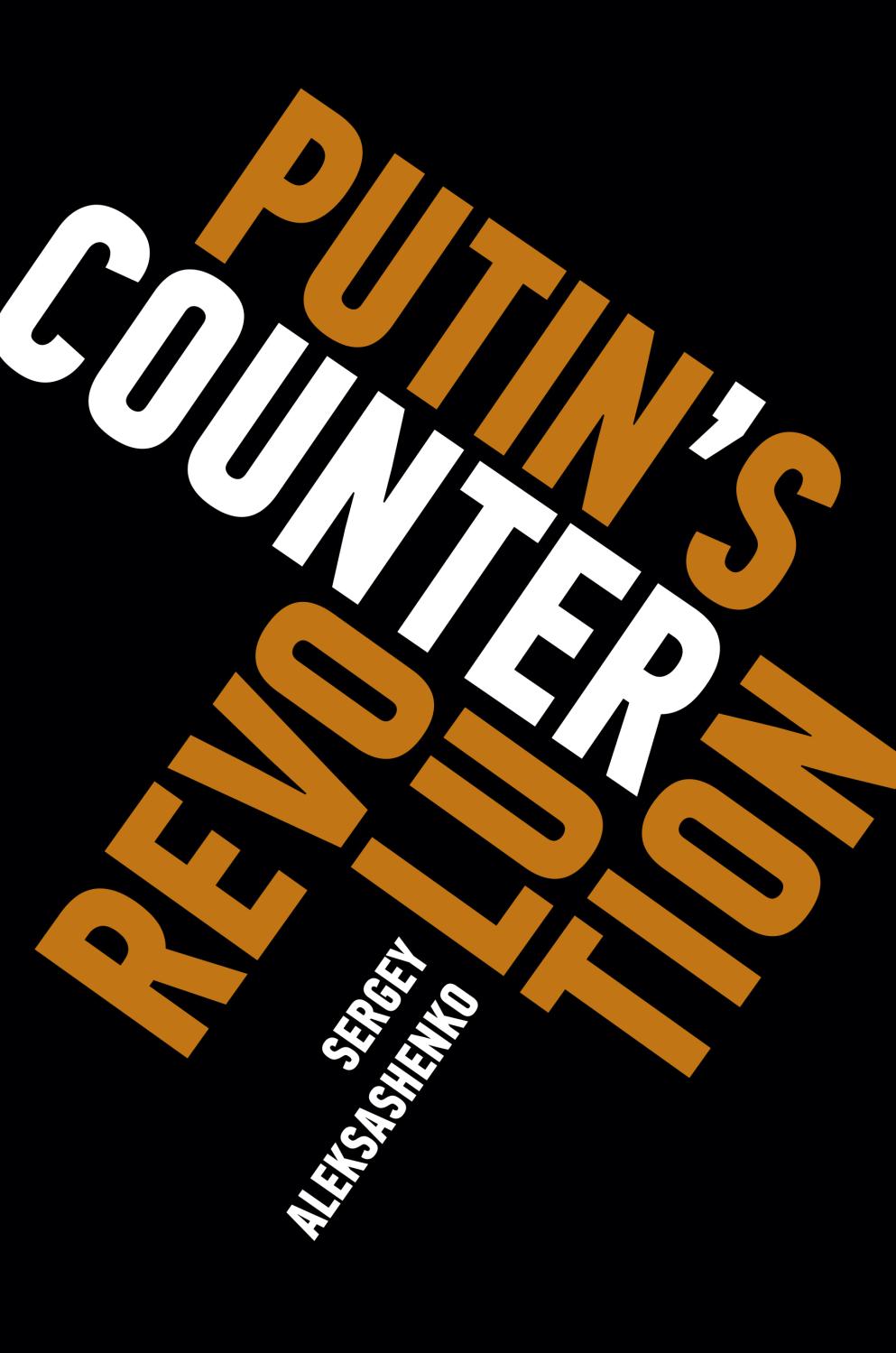


Book
How Putin’s autocracy undercut Russia’s economy and chances for democracy
During his nearly twenty years at the center of Russian political power, Vladimir Putin has transformed the vast country in many ways, not all of them for the better. The near-chaos of the early post-Soviet years has been replaced by an increasingly rigid authoritarianism, resembling a hard-fisted monarchy more than the previous communist dictatorship. Putin’s early years in power saw rapid economic growth, averaging nearly 7 percent annually, and the rise of Moscow as a vibrant European-style city. But a slowdown during the second half of Putin’s administration, since 2009, has resulted in the stagnation of the economy, especially in the hinterlands, with few signs of a possible turnaround.
What accounted for these changes in Russia? Sergey Aleksashenko, a former top Russian finance official and then private businessman, lays the blame squarely on Putin himself, even more than external factors such as the sharp fall in oil prices or Western sanctions after Russia’s annexation of Crimea in 2014.
In his relentless drive to consolidate power in his own hands, Aleksashenko writes, Putin has destroyed the very idea of competition for political power. He has done so by systematically undercutting basic political institutions of the post-Soviet Russian state, including independent power centers such as the parliament, the judiciary, and a free media. In the economic realm, Putin effectively undermined Russia’s still-emerging and very fragile system for protecting property rights—the basis of all economic activity. This in turn caused a sharp decline in private investment and thus contributed to the long-term economic slowdown.
One result of Putin’s rule was the destruction of the emerging checks and balances system in Russia, and that would be a major problem for Russia if and when it decides to become a “normal” democratic country based on Western values. In describing how all this happened, Aleksashenko’s book offers universal lessons in the necessity of checks and balances in any political system—as well as in the importance of vibrant political institutions for economic growth.
Related Books

Daniel Treisman
February 6, 2018

Keir Giles
January 29, 2019
“The book offers a definitive account of how, since the late 1990s, the balance of power in Russia has shifted decisively in favor of government officials over private firms. The regime’s economic dominance helps explain its lack of interest in reforms that would protect the property rights or political freedoms of potential challengers.”
—David Szakonyi, Foreign Affairs
“There is a lot more to recommend in Putin’s Counterrevolution, but Aleksashenko is particularly fluent in the world of Russian business. . . . Here Aleksashenko provides lucid translations from corporate-speak into the language of power politics.”
—Igor Logvinenko, The Russian Review
“Overall, the author’s research and experience provide an important perspective on Russian politics since 2000. Recommended.”
—CHOICE
“Sergey Aleksashenko has written a truly compelling account of the relationship between politics and economic development in Russia over the last thirty years. Jumping eloquently from statistical analysis to detailed qualitative case studies about renationalization, Aleksashenko shows convincingly that Putin’s autocracy has not driven economic growth, but just the opposite. Putin’s Counterrevolution will have a very long shelf life!”
—Michael McFaul, director, Freeman Spogli Institute for International Studies, Stanford University; U.S. ambassador to Russia (2012–14)
“Putin’s Counterrevolution details how President Vladimir Putin turned a chaotic proto-democracy into the authoritarian political regime that exists in Russia today. Sergey Aleksashenko, one of the country’s top economic analysts, describes how the Kremlin consolidated control in a number of areas: the media, regional governments, the judiciary, parliament, and the world of business. Dispassionate and authoritative, the book draws on interviews with key officials and a range of published sources to offer perhaps the best historical review of this period to date.”
—Daniel Treisman, professor of political science, University of California, Los Angeles
Author
Sergey Aleksashenko is a nonresident senior fellow at the Brookings Institution. In the 1990s he was in public service in Russia, serving as deputy minister of finance and first deputy governor of the Central Bank of Russia. Afterward he spent ten years in Russian and international business. Since 2008 he has been in academia. His previous book, The Battle for the Rubble, gives an insider's view of 1998 financial crisis in Russia.
Putin’s Counterrevolution